How to fake natural light in a dark room - 5 design tricks to brighten up a gloomy space
Get out of the gloom and make every space bright and uplifting with our experts’ advice

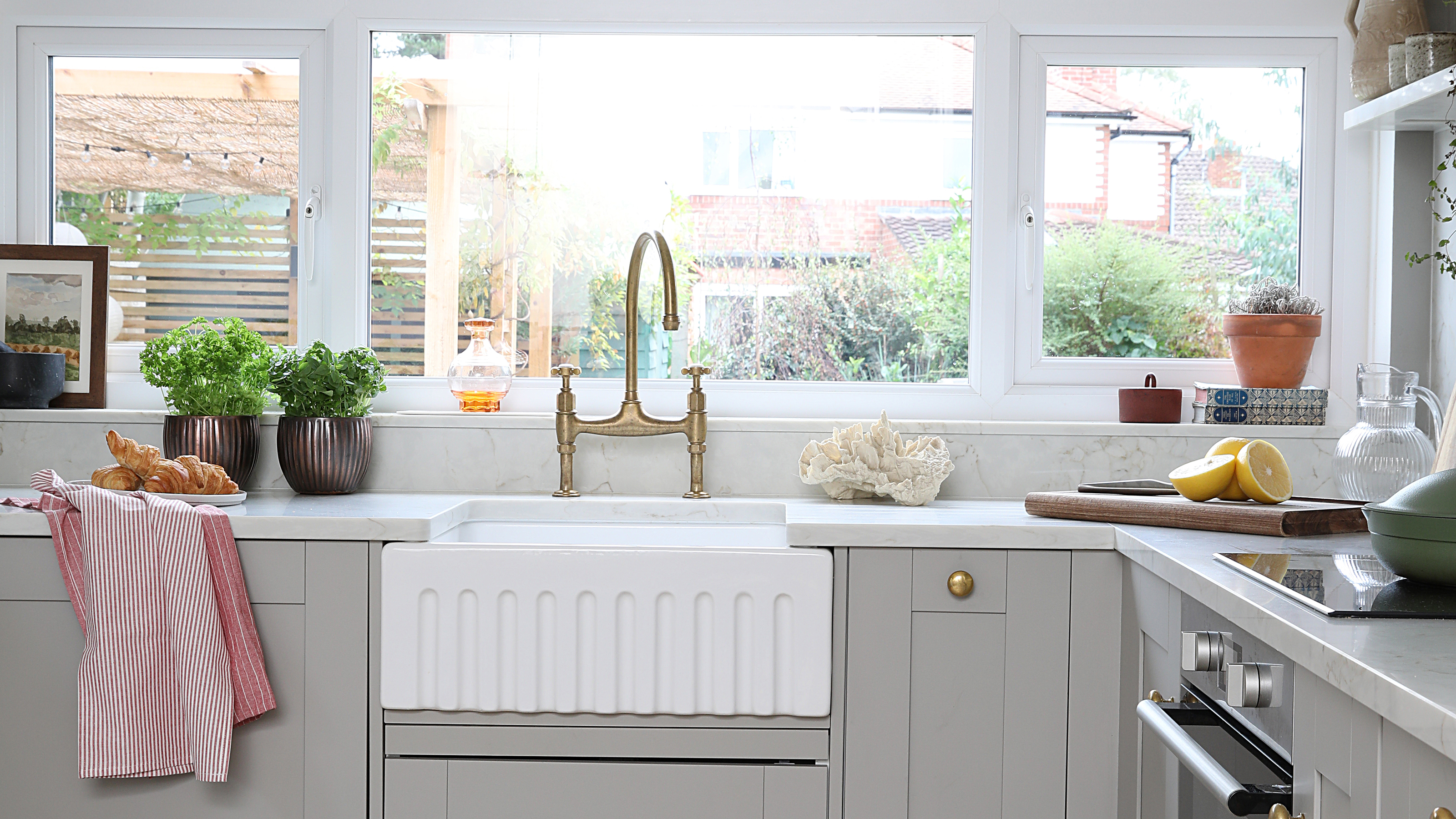

Whether you’re struggling with short daylight hours in winter, a north-facing space or a windowless bathroom, there are things you can do to lighten up your life. After all, your health depends on the benefits of natural light and there is only so much bedroom lighting or living room lighting ideas can do.
Environmental psychologist Dr Sally Augustin points out in the scientific journal Psychology Today, ‘Research consistently shows that spending more time in natural light while indoors does all sorts of great things for what goes on in our minds and bodies, as long as we keep stress-inducing glare in check.
‘Scientists have found, for example, that with more time in naturally lit spaces our moods improve, and we’re better at getting along with other people. Cognitive performance and creative thinking get a boost, as does our ability to learn new material. We have better self-control.
'Stress levels can fall as circadian rhythms align with a person’s place on the planet – which is good for our body as well as our mind. We can keep track of time-of-day, weather, etc., which contributes to keeping tension in check. Our physical health is better, and we sleep for longer periods each night.
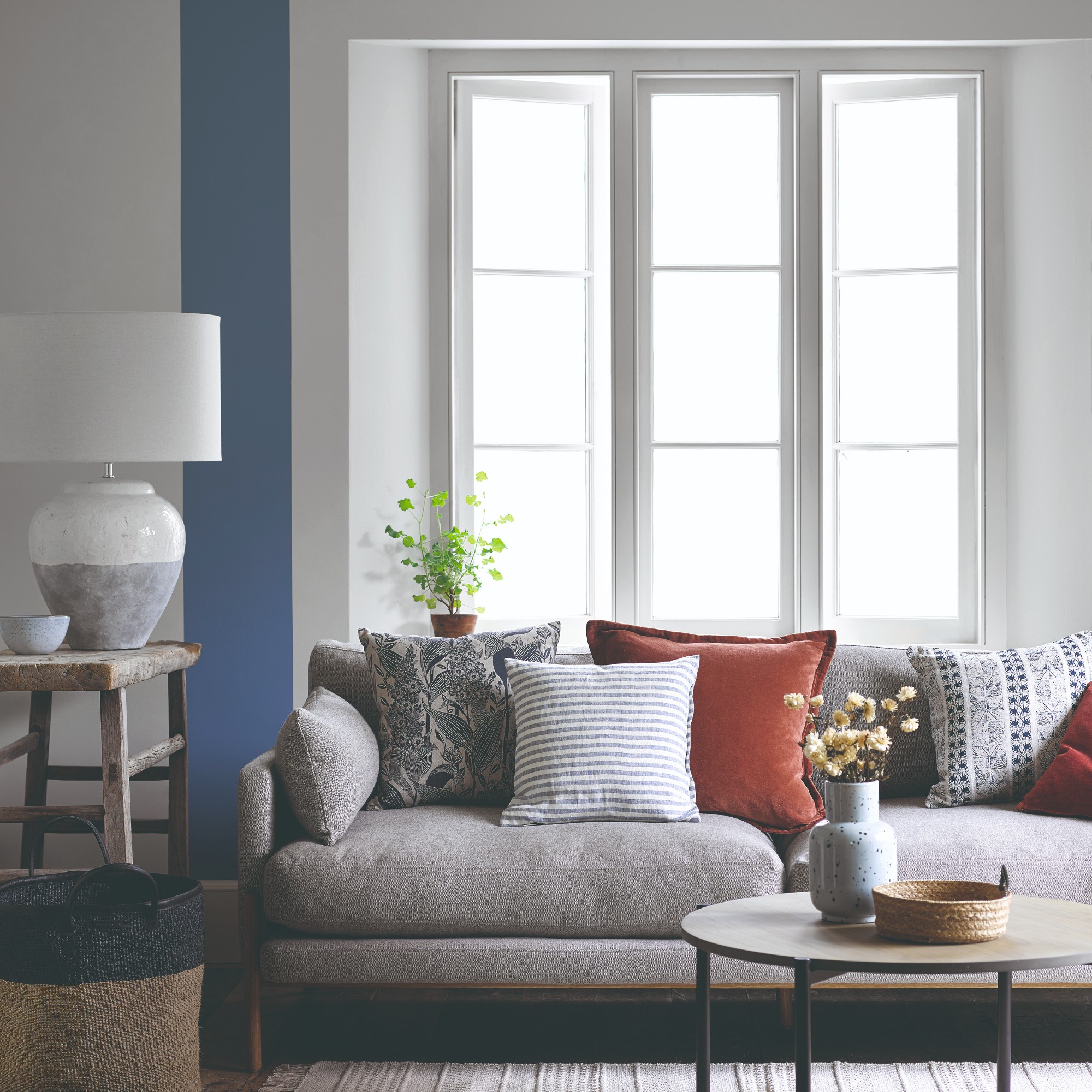
'Being in natural light has been tied directly to all sorts of desirable physical conditions, such as lower blood pressure levels and production of mood enhancing neurotransmitters; sleeping for longer periods makes it more likely that we’ll have the energy we need to make the most of our day, which is good for both our mental and physical wellbeing.’
A lack of natural light can have a physical and mental impact: a recent survey of 2,000 respondents by Blinds 2go found that 70% grappled with feelings of low energy, sluggishness, and agitation with the onset of winter. The survey also revealed that 16% of the UK population, or over 10 million UK adults, suffer from seasonal affective disorder (SAD) during the winter months.
How to fake natural light in a dark room
Some rooms just need to be light and bright: the right kitchen lighting ideas and hallway lighting ideas and key for a smooth-functioning home because of how busy those spaces tend to be. Other rooms need flexible options for bright daytimes but a warm and relaxed mood in the evening. Thankfully, the experts have plenty of tricks up their sleeves to help you get the right lighting scheme for your space.
Sign up to our newsletter for style inspiration, real homes, project and garden advice and shopping know-how
1. Use specialist lighting
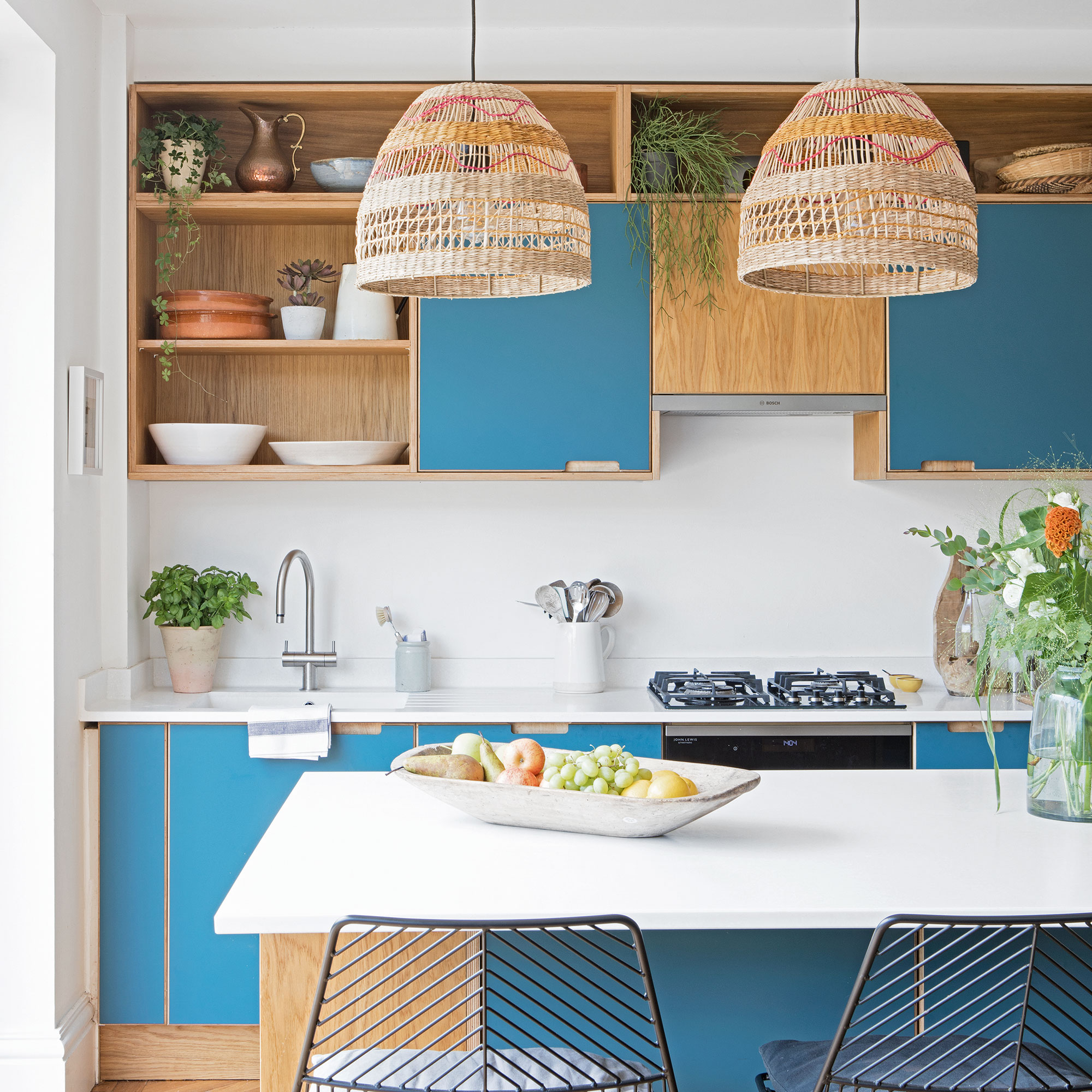
David explains, ‘There are specialist, high-technology light fittings which replicate natural light, such as light fittings by CoeLux, which are specifically designed to be used in spaces with limited or no natural light.
These are usually recessed into a ceiling and really do create the illusion of a skylight on a sunny day. Alternatively, directional recessed or surface-mounted spotlights can wash walls with light, mimicking the effect of light shining through a window and flooding an area of a room with light.’ For this kind of effect, David recommends the Nautilus LED ceiling light or the Light Attack Rap-D Downlight.
For task lighting, daylight lamps have been popular with crafters and bookworms for years, but they can be used as part of any everyday lighting scheme for a room. Fraser Hodgson, product development director at lighting company Daylight explains the benefit of these specialist lights which have a high Kelvin rating (this is a measure of colour ‘temperature’, from warm and relaxed to cool and bright: ‘When reproducing natural daylight in the home environment, it’s extremely important to combine white light of about 6,000 Kelvin with a high colour rendering of 95+ CRI (Colour Rendering Index). This will give the most vivid accurate colours and provide excellent contrast.’
2. Use mirrors and gloss finish
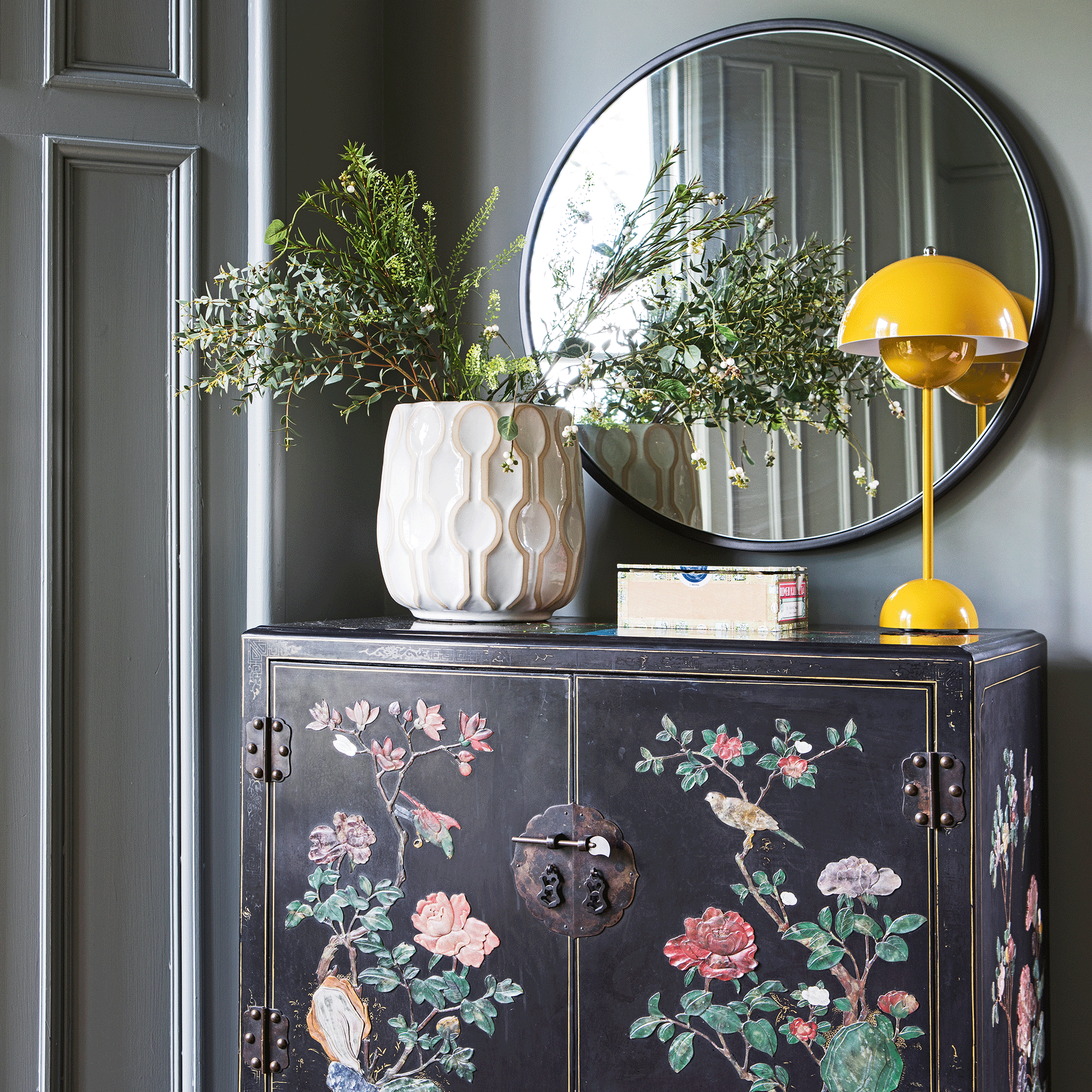
‘Dark rooms can be tricky to decorate,’ says professional interior stylist Laurie Davidson, ‘but there are some easy ways you can make them lighter. Shiny surfaces can lift a dark interior, so consider hanging large mirrors and reflective materials to multiply what natural light there is. In a kitchen, why not incorporate a mirrored splashback, or go wall to wall with a mirror in a small, dark bathroom?’
Walls can be a shiny surface, too, with the correct paint finish. Ruth Mottershead, creative director at Little Greene explains, 'When choosing a paint finish, consider the amount of light the finish will reflect back into the room as well as the mood you want to achieve. A flat matt finish will have a ‘barely there’ low-sheen level of just 3%, creating a sublime chalky finish that works particularly well with darker paint colours for truly atmospheric space. Whereas a luxurious gloss finish will offer a reflective high sheen of 80%, bouncing more light back into your room.'
3. Layer artificial lighting
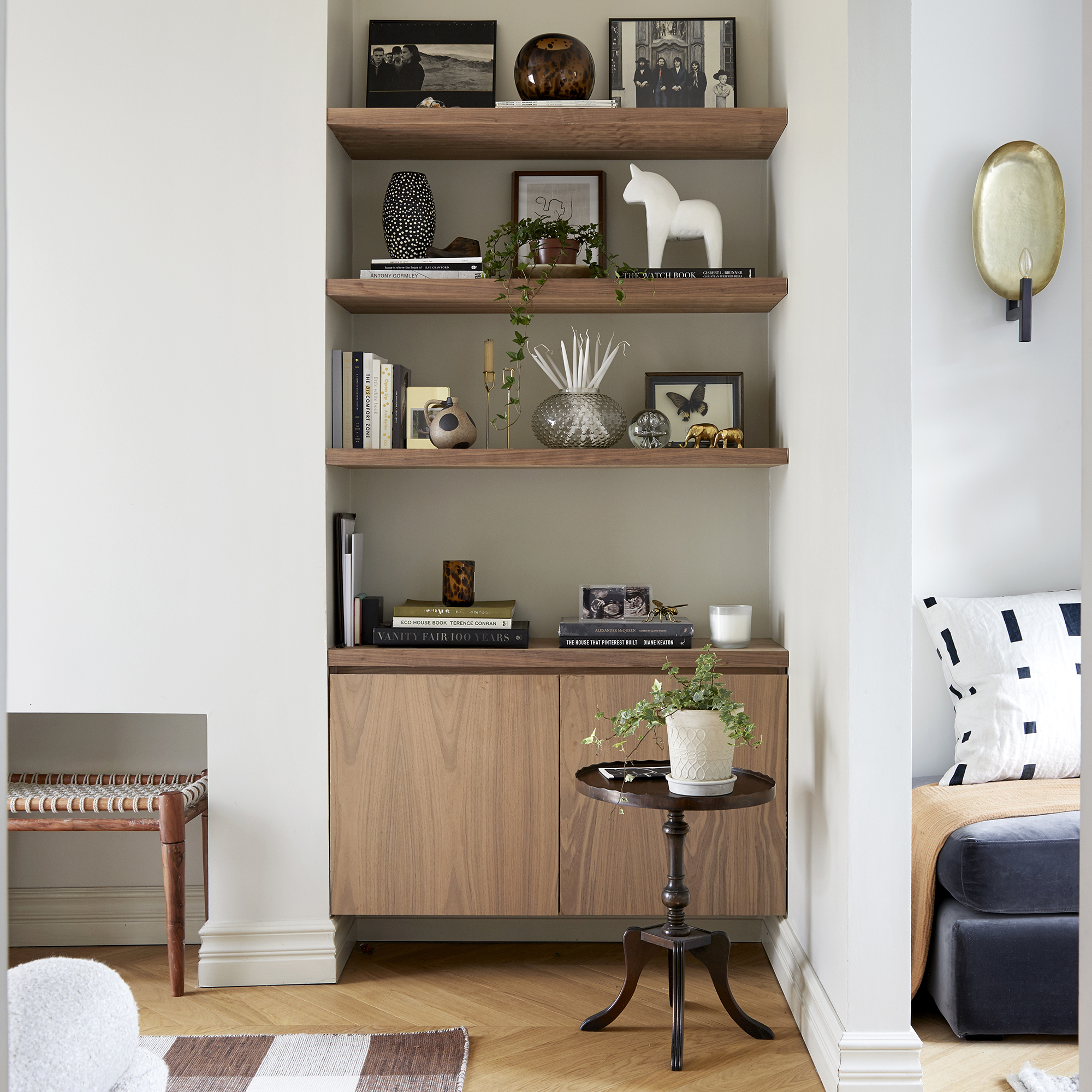
Need ideas for a windowless bathroom or a north-facing living room? David Village explains how to combine lighting types to create the feel of natural light: ‘ A dark or windowless room will need a lighting plan to accommodate both daytime and nighttime scenarios to suit the different uses and ambiences of a room at different times of day. One way to achieve this is using flexible switching, cleverly layering the levels of lighting through having multiple light fittings over different circuits and utilising dimmer switches.
'Light fittings where the colour temperature can be adjusted are ideal for creating different lighting scenarios within a room with little or no daylight. These products can often be controlled via an app and pre-programmed to have a different level of brightness and colour temperature at specific times.’
David recommends the Artemide Calipso LED ceiling/wall light and the Foscarini Twiggy Elle floor lamp.
4. Upgrade your light bulbs
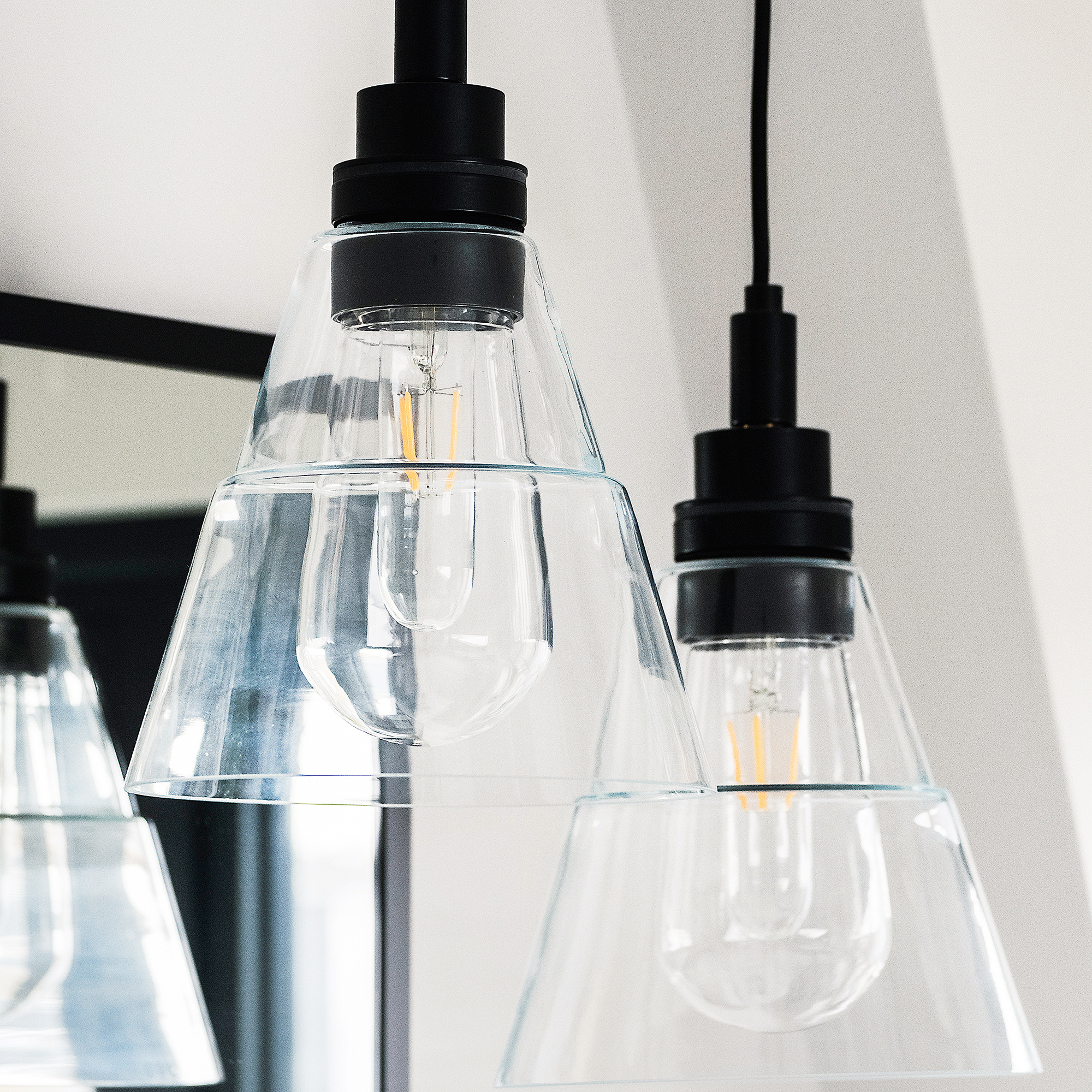
Suzy Maas, a home stager at The Final Touch, is skilled at brightening gloomy rooms to make properties more saleable. She advises, ‘Use the right light bulbs. Opt for daylight or cool white LED bulbs that mimic the colour temperature of natural light.’
David Village points out that many of today’s modern lights don’t have a bulb as such: ‘The majority of lights how have an LED chip inside the light itself, rather than requiring a bulb,’ he explains. ‘But whether you choose a product with an integrated LED light source or one which requires a bulb, the principle is the same: it’s important to choose one that has a good brightness level, measured in Lumens.
'Try to get the maximum brightness, and one that can be dimmed for full flexibility. Avoid any with a colour temperature above 3,000 Kelvin, as this would provide a cold light.’
5. Brighten the walls with white paint
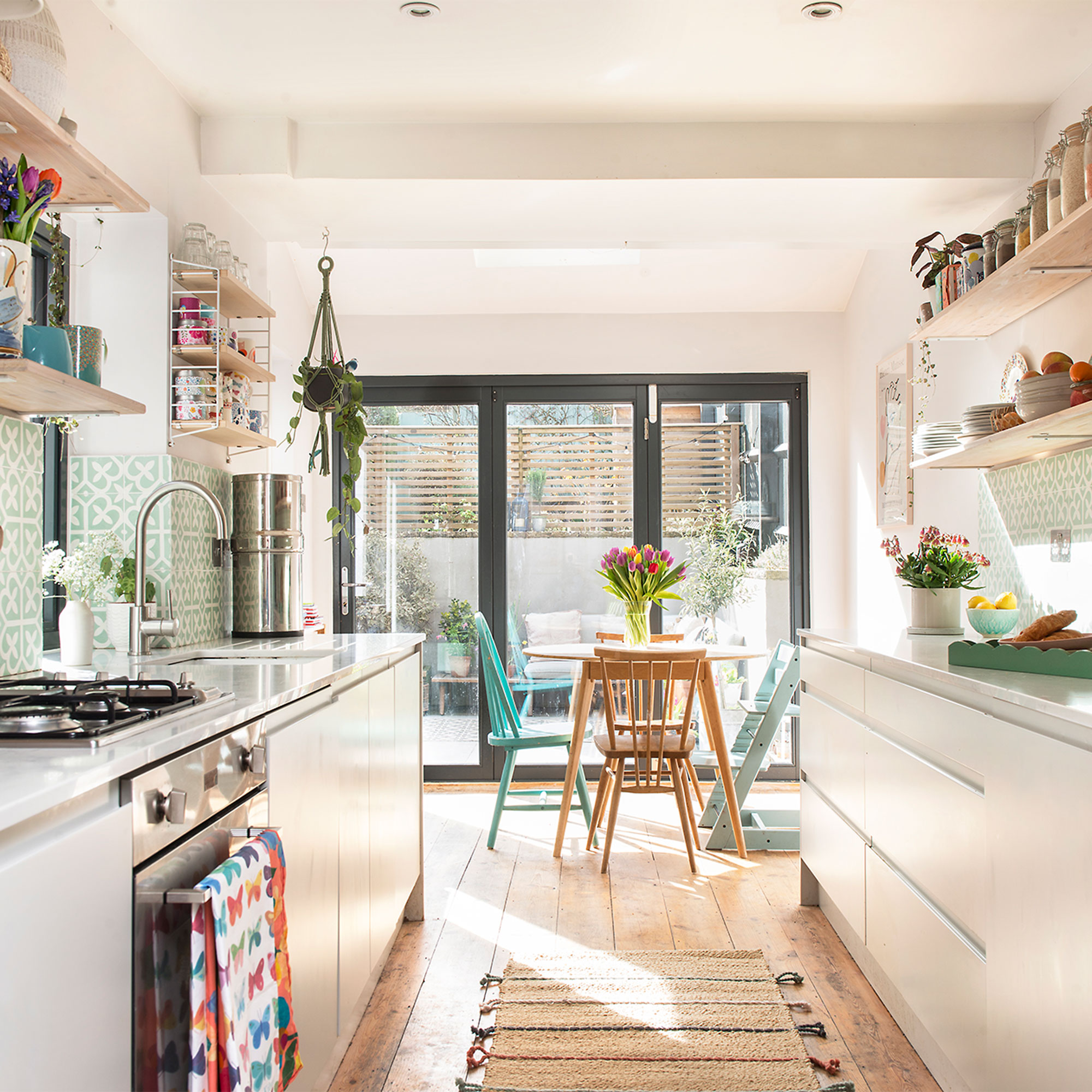
Ruth says that the shade of white you choose for a kitchen should differ from the shade you choose to brighten a bedroom: ‘Before choosing a white shade, it is important to consider the mood and the atmosphere you wish to create.
'Often we can make the mistake of choosing brilliant white, which has a slight blue undertone and can make interior schemes feel clinical or harsh. Understanding how the undertones in different whites and soft neutrals behave in different room orientations is key.
'Darker rooms are often north facing, receiving not only less light, but a cooler tone of natural light. In this situation, choose whites with warmer undertones such as 'Clay Pale’ or ‘First Light’ which will bring warmth and cosiness along with a bright fresh feel.'
White is not the only option, though. Any light neutral will brighten your space, as Ruth explains: 'Many opt to use bright white in small or dark rooms with the aim of making the room appear brighter or larger; however, light neutrals used in a tonal scheme will create a gentle, harmonious living environment whilst not appearing too stark. Using soft, light tones will help make the room feel brighter.'
FAQs
How do you make a dark room look light?
Professional home stager Suzy Maas of The Final Touch sums it up: ‘The secret to brightening any room lies in the harmonious interplay of mirrors, surfaces, finishes and furniture. Mirrors are your best friend for maximising natural light and the choice of light coloured walls, flooring and furniture, glossy finishes and sheer curtains all play a pivotal role. Additionally, decluttering can help, as it allows light to flow freely around a space.’
How do you simulate sunlight in a dark room?
Lighting designer David Village says, ‘ Sunlight is actually a very cold light at 6,000 Kelvins, which would be totally inappropriate in a house and give a clinical and cold white light. So, to get a light which ‘feels’ like sunlight, I would recommend a colour temperature of 3,000 Kelvins, which would create the warmth we associate with sunshine. We also associate sunlight with being bright, so the light fittings need to be bright, too.’
If you’re struggling with low mood in the winter months, a SAD (Seasonal Affective Disorder) lamp could help. A medical light rather than an interior design choice, these lights mimic daylight to trick your brain into boosting its serotonin (happy hormone) levels.
Tom Murfitt, clinical director at Oxford CBT, says, ‘Sunlight plays a crucial role in influencing serotonin levels, the neurotransmitter linked to mood, so incorporating use of a SAD lamp into your routine can bring about improvements in mood, energy levels and sleep patterns.’
Lumie does a great range of lamps including a mini lamp priced at £60.
Don't settle for a darky and dingy home this winter. Use our top tips to add some extra sunlight to your home.

Vanessa Richmond has been a freelance writer, editor and editorial consultant since 2021. Her career in magazines began in 1998 and, apart from a four-year stint at women’s lifestyle magazine Red, it has been spent working on interiors titles including House Beautiful, Country Homes & Interiors and Style at Home. She is a former editor of Ideal Home, Country Homes & Interiors and Style at Home magazines. She has also worked for House Beautiful and Red. During her 25 years as a journalist, she has been a sub-editor, columnist, deputy editor and editor. Now she combines freelance writing with being a secondary-school English teacher.